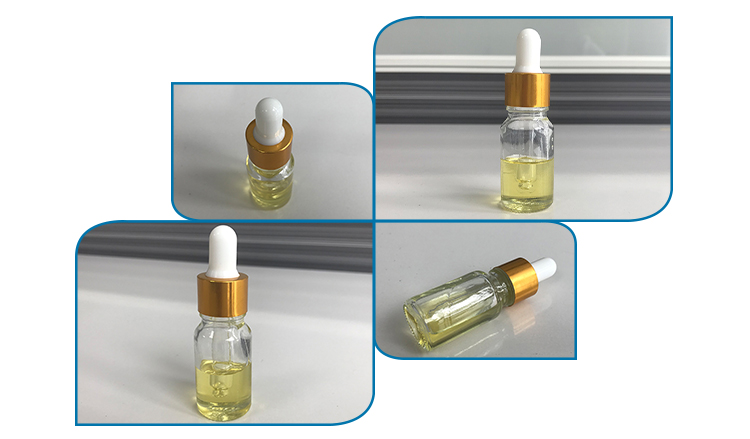DHA Algal Oil is a plant-based source of omega-3 fatty acids derived from algae. It’s a popular supplement for individuals who may not consume fish or want an alternative source of DHA. Here are some general guidelines on how to use DHA Algal Oil for the best results:
1.Consult with a Healthcare Professional:
Before incorporating any new supplement into your routine, it’s advisable to consult with a healthcare professional. They can provide personalized advice based on your health status, dietary habits, and individual needs.
2.Follow Recommended Dosage:
Adhere to the recommended dosage specified on the product label or as advised by your healthcare provider. Excessive intake of any supplement can have adverse effects.
3.Take with Meals:
You can take DHA Algal Oil with meals to enhance absorption. Consuming it with food, especially those that contain some healthy fats, can improve the absorption of the omega-3 fatty acids.
4.Consistency is Key:
Omega-3 fatty acids, including DHA, provide benefits over the long term. Consistency in taking the supplement is crucial to experience the potential health benefits.
5.Consider Timing:
Some people prefer taking supplements at specific times of the day. While there’s no strict rule for DHA Algal Oil, you may choose a time that fits well with your routine and helps you remember to take it consistently.

6.Check for Interactions:
If you are taking other medications or supplements, check for potential interactions with DHA Algal Oil. Your healthcare provider can advise on any adjustments that may be needed.
7.Store Properly:
Follow the storage instructions provided on the product packaging. Generally, omega-3 supplements are sensitive to light, heat, and air, so storing them in a cool, dark place is recommended.
8.Monitor Health Benefits:
Keep track of any changes or improvements in your health that you may attribute to the DHA Algal Oil. This can help you and your healthcare provider assess its effectiveness for your specific needs.
Remember, individual responses to supplements can vary, so it’s essential to pay attention to how your body reacts and to communicate any concerns or questions with your healthcare provider. Additionally, obtaining omega-3 fatty acids through a well-balanced diet that includes fatty fish, flaxseeds, chia seeds, and walnuts is also a good practice.
Potential Benefits of DHA Algal Oil
DHA (docosahexaenoic acid) is an omega-3 fatty acid that is crucial for various aspects of human health, particularly for the proper functioning of the brain and eyes. DHA Algal Oil is derived from algae, and it offers a plant-based source of DHA. Here are some potential benefits associated with DHA Algal Oil:
1.Brain Health:
DHA is a major structural component of the brain, and it plays a crucial role in cognitive function and development.
Adequate DHA intake is associated with better cognitive performance, memory, and learning abilities.
2.Eye Health:
DHA is a key component of the retina in the eyes, contributing to visual development and maintaining eye health.
Studies suggest that sufficient DHA intake may help reduce the risk of age-related macular degeneration (AMD) and other eye disorders.
3.Heart Health:
Omega-3 fatty acids, including DHA, are known to have cardiovascular benefits. They can help lower blood triglyceride levels and support overall heart health.
DHA Algal Oil may contribute to the prevention of cardiovascular diseases by reducing inflammation and improving lipid profiles.

4.Pregnancy and Infant Development:
DHA is crucial during pregnancy for the development of the fetal brain and eyes.
Maternal supplementation with DHA has been associated with better cognitive outcomes in children.
5.Anti-Inflammatory Properties:
DHA has anti-inflammatory effects, which can be beneficial in managing chronic inflammatory conditions.
It may help reduce inflammation in the body and contribute to overall well-being.
6.Mood and Mental Health:
Some studies suggest that DHA may have a positive impact on mood and mental health.
It is being explored for its potential role in managing conditions such as depression and anxiety.
7.Vegetarian and Vegan Source:
DHA Algal Oil provides a sustainable and vegetarian/vegan-friendly alternative to traditional marine-based sources of omega-3s, such as fish oil.
It allows individuals, including those who follow plant-based diets, to meet their DHA needs without relying on fish-derived products.
8.Joint Health:
Omega-3 fatty acids, including DHA, have been associated with reduced joint pain and stiffness, potentially benefiting individuals with conditions like rheumatoid arthritis.
It’s important to note that while DHA Algal Oil offers many potential benefits, individual responses can vary. It’s advisable to consult with a healthcare professional before incorporating any new supplement into your routine, especially for pregnant women, individuals with medical conditions, or those taking medications.
